‘The aliens are already here’: A new campaign urges people to fear the dangers of climate change instead
For decades, we’ve seen dystopian sci-fi thrillers unleash sinister extraterrestrials on the world. But a new poster campaign aims to show that Earth has a bigger problem than the alien invasions in War of the Worlds or Men in Black—the climate catastrophe. (And, unlike in Men in Black, there’s no neuralyzer to erase the horrors from our memories.)
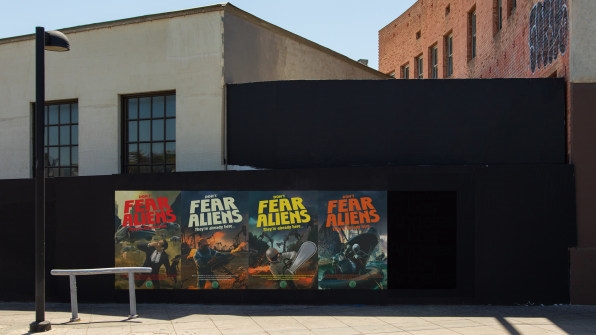
L.A.-based creative agency Fred & Farid partnered with Fridays for Future, the Greta Thunberg-founded climate movement, to release four posters that highlight the crisis we’re in. Each focuses on a different element impacting climate change: cars, oil drilling, deforestation, and overfishing. The timing is key, with the posters released a week ahead of the U.S. midterm elections, when Americans have a choice between candidates who prioritize climate legislation and those who deny it.
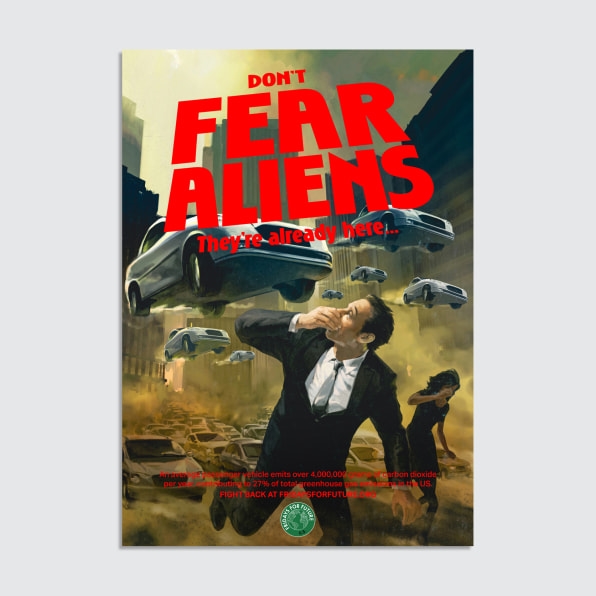
With their environmentally unfriendly policies, these leaders “treat this planet as a stopover” rather than our home, says Chelsea Steiger, Fred & Farid’s creative director, via email. More to the point, the campaign suggests they’re doing much worse for the planet than a swarm of invading aliens would. The message that “humans might be the aliens after all” forms the basis of the campaign.
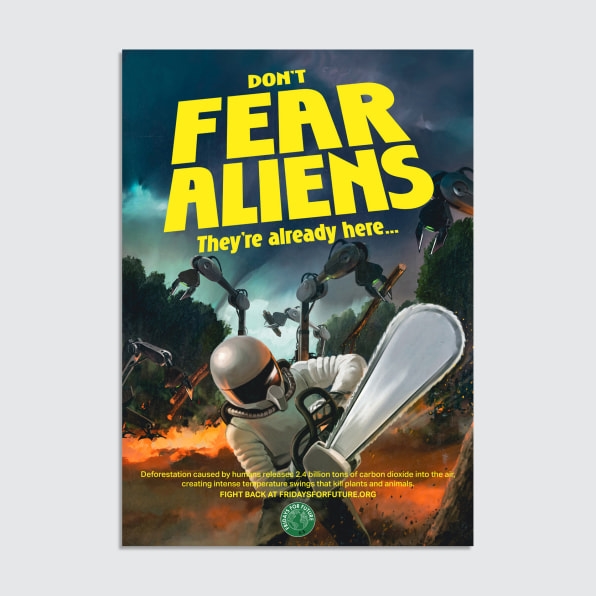
Where sci-fi movie posters would feature menacing aliens, these posters showcase humans in masks or helmets that eerily conceal their faces. On the deforestation poster, someone savagely fells trees with a chainsaw, with the help of robots behind them ripping up the forest. On the anti-oil one, a person drills for oil, unfazed by the fires blazing behind him. The overfishing poster shows fishermen in rubber dinghies clearing the ocean of its sealife, with massive nets filled with fish in the background.
Under each poster, there’s a caption to contextualize the issue: “Nearly 100 million barrels of oil are consumed globally each day, creating a third of the world’s total carbon emissions.” “Deforestation caused by humans releases 2.4 billion tons of CO2 into the air, creating intense temperature swings that kill plants and animals.” And “[An average car] emits over 4M grams of CO2 per year, contributing to 27% of total greenhouse gas emissions in the U.S.”
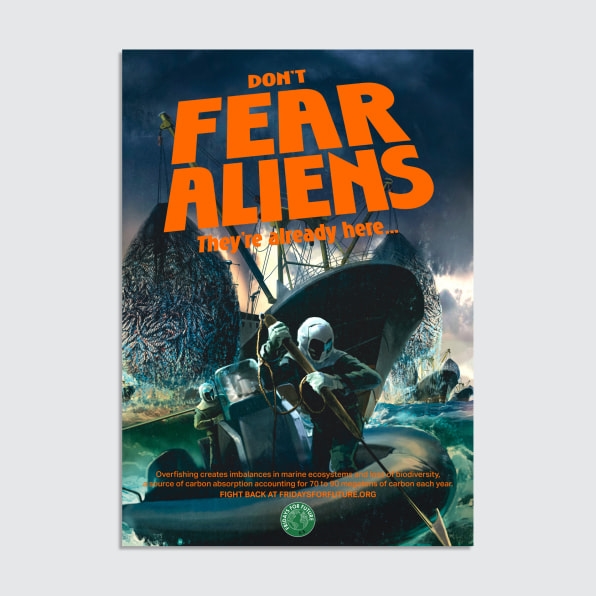
Despite these stark realities, it’s been a struggle to pass climate legislation. (A slim Democratic majority was able to pass climate provisions with August’s Inflation Reduction Act, but it’s expected that this will be the last significant move for awhile.) There are 139 elected officials in the current U.S. Congress who have denied climate change—60% of Senate Republicans and 52% of House Republicans, who have collectively taken more than $61 million from the fossil fuel industry. And it seems to be a worsening trend: Of 2020’s freshman congressional class, one-third deny that climate change exists.
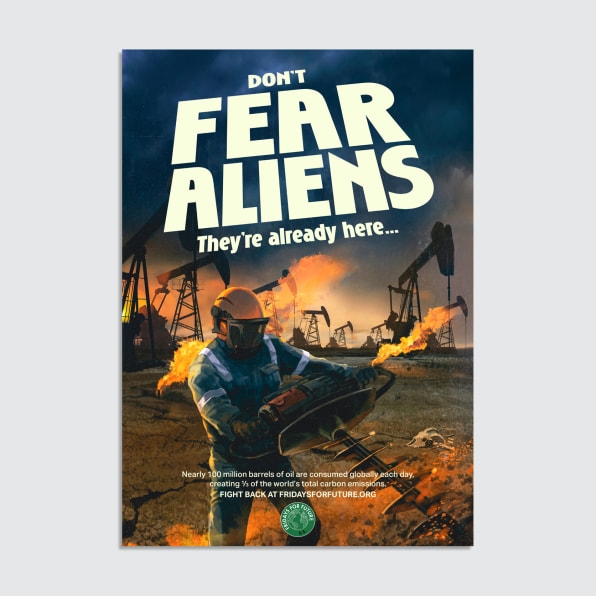
That’s worrisome in terms of next week’s election, with Republicans poised to win back the House and perhaps the Senate. But there are races with high climate stakes throughout the country, including state legislature races in Minnesota and North Carolina, and a Supreme Court race in Ohio. “Our government and policy officials are the ones with the most power to continue to allow or stop the ongoing destruction to our planet,” Steigler says.
In the run-up to the election, each poster will be published digitally on the Instagram page of the U.S. chapter of Fridays for Future. (The name comes from Thunberg’s international coalition of students who skip school on Fridays to agitate for climate action.) Hard copies of the posters will also be plastered at the movement’s upcoming events, including conferences and strikes, even after the election. (The campaign will run in parallel with COP27, the UN conference for climate change, though Thunberg herself is boycotting it, having denounced it as a forum for “greenwashing.”)
“Aliens” is not the first partnership between Fred & Farid and the movement. They collaborated to design satirical tourism posters showing iconic world destinations as bleak and bare: a flooded Venice, Queensland with bleached coral, and ski slopes of Zermatt barren of snow. Another joint video campaign brought to life Thunberg’s “house on fire” metaphor, showing an oblivious family going about their lives inside their burning house.
The objective is always to offer a “fresh take” on the climate crisis, Steigler says. “We always ask ourselves: Will it make people think about climate change in a different light?”
(21)


